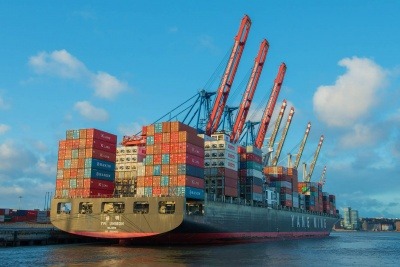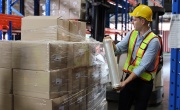FEAD urges safe and efficient waste shipments
Ahead of the upcoming rapporteurs’ meeting on 12 October, the European Waste Management Association (FEAD) has reinforced its last OECD Trade and Environment Working Paper on reverse supply chains for a resource efficient and circular economy.
 The working paper raises concerns echoed by the wider waste management industry over the past few years, in particular, regarding the ongoing revision of the EU Waste Shipment Regulation.
The working paper raises concerns echoed by the wider waste management industry over the past few years, in particular, regarding the ongoing revision of the EU Waste Shipment Regulation.
FEAD highlights the parallels between a circular economy and a resource efficient economy – the body states that circular economy business models rely on reverse supply chains and reverse logistics to close material loops, such as recycling waste and scrap into secondary raw materials.
According to the association, recent trade developments in waste and scrap have focused on increasing transboundary controls, such as the import bans for certain categories of waste and scrap introduced in China, and the plastics and e-waste amendments to the Basel Convention.
Further, FEAD says trade impediments to circular business models often relate to ‘heavy and lengthy procedural requirements’ to ship end-of-life products across borders for their circular use. However, complex and time-consuming procedural and administrative requirements oppose circular economy business models, increasing their costs and work.
The association’s proposals to ensure safe and efficient waste shipments are as follows:
Illegal waste trade distorts competition in the recycling industry
- Appropriate enforcement measures are needed.
- Better controls, traceability and cooperation among Member States are essential, but also strong harmonised end-of-waste criteria and criteria to distinguish between used goods and waste.
Eco-design is crucial for products to be better utilised at their end-of-life through recycling
- Ecodesign requirements should determine as much as possible mandatory recycled content, whereas ecolabelling schemes and green public procurement should further incentivise the demand for products with recycled content.
Procedural burdens and delays, with associated costs in the cross border transportation of end-of-life products need to be addressed with clear and efficient waste shipment rules
- Financial guarantees are ‘burdensome and costly’ and are also blocking possible investments, whereas such guarantees are hardly ever executed. Risk-based approaches and alternative, less burdensome systems should be explored. Financial guarantees should not be required for ‘green-listed’ waste shipments.
- Introducing an interoperable electronic notification procedure will increase the speed, efficiency, transparency and traceability of the notification procedures. However, there is a need for a paperless solution also in the transition period until the implementation of such electronic submission and exchange system is completed.
- All authorities should accept documentation in English to facilitate and streamline shipment procedures in an international environment.
- The general information procedure for ‘green-listed’ waste should continue to allow for modifications on the same day of the shipping.
- The confirmation deadline for the receiving facility should remain at three days and not be reduced to one day.
- The pre-consent procedure needs to be improved to become a real swift path to develop the circular economy in the EU. It is essential that the pre-consent status is recognised by all competent authorities.
Trade restrictive measures including import and export restrictions hamper circular
economy models
- The requirements for the list of non-OECD countries to receive waste is ‘an extreme administrative burden’ for all parties and could have a disproportionately deterrent effect. Instead, sound environmental management, transparency, and traceability can be equally and sufficiently ensured through the proposed audit procedure.
- There is a need for a waste-stream specific approach in the exports regime that differentiates ‘problematic’ and ‘non problematic’ waste streams.
- The new and strict rules on plastic waste exports introduced by BC COP14 should be strictly implemented before there is any thought about a full export ban.
- Enforced possibilities for multilateral agreements between EU/EEA countries in the same geographical vicinity, would allow to further share administrative and infrastructural burden.
A patchwork of different definitions and classification of end-of-life products between countries creates uncertainty for cross-border circular business transactions
- There is a need for a harmonised understanding of what is considered as ‘green-listed’ waste.
- Strong harmonised end-of-waste criteria and criteria to distinguish used goods and waste are needed. As long as those are under development, authorities should mutually recognise their national criteria.
Peter Kurth, FEAD President, said: “We need to overcome trade restrictions caused by heavy procedural requirements in cross-border waste shipments and strengthen trade facilitation mechanisms to ensure that valuable resources can re-enter the production processes where they are needed, closing the loop of the circular economy."




